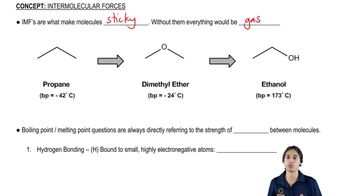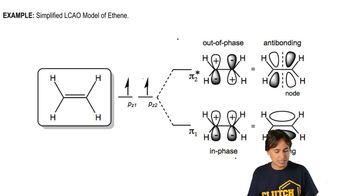Predict which compound in each pair has the higher boiling point. Explain your prediction.
(e)
(f)
 Verified step by step guidance
Verified step by step guidance Verified video answer for a similar problem:
Verified video answer for a similar problem:



 3:08m
3:08mMaster How IMFs are related to melting and boiling points. with a bite sized video explanation from Johnny
Start learning